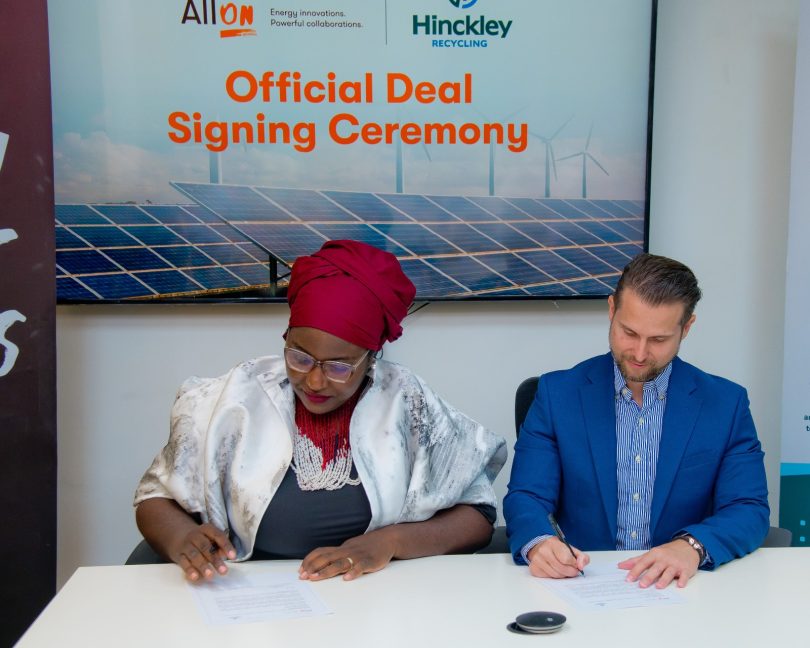Hinckley E-Waste Recycling Limited has secured a $1.5 million equity investment from All On, an impact investment company backed by Shell. The funding will be used to develop Nigeria’s first large-scale battery recycling facilities.
The investment, announced on Tuesday in Lagos, is expected to accelerate the transition to a circular economy in the country’s fast-growing clean energy sector.
Hinckley will use the funding to build state-of-the-art plants for recycling lithium-ion and used lead-acid batteries. The move will position Nigeria to manage better the surge in electronic waste linked to solar adoption. Both facilities will be the first of their kind in the country. They mark a milestone in efforts to combat the environmental and health hazards caused by improper e-waste disposal.
Read Also: All On backs solar firm Salpha with N2bn investment to expand electricity access – Businessday NG
“As Nigeria’s clean energy sector expands, so does the volume of electronic waste,” said Caroline Eboumbou, CEO of All On. “Our investment in Hinckley is a direct response to the findings of our circular economy research and reflects our commitment to building a sustainable battery supply chain that supports local value creation, environmental stewardship, and inclusive growth.”
E-waste is one of the fastest-growing waste streams globally, with Africa emerging as a hotspot. Nigeria, in particular, imports millions of tonnes of second-hand electronics annually, much of which ends up in informal dumpsites. The lack of formal recycling systems has led to unsafe practices such as open burning and acid leaching, exposing communities to toxic substances, including lead and cadmium. According to the UN, only 17 percent of global e-waste is formally recycled.
Adrian Clews, Hinckley’s CEO, stated that the company’s goal is to transition informal collection into structured systems and establish recycling infrastructure that meets international standards. “Enhancing e-waste recycling could significantly reduce health and environmental risks while supporting the thousands of Nigerians who currently work in the sector under unsafe conditions,” he said.
The project is also expected to reduce the cost of solar products by recovering and reusing battery materials, while creating jobs across the recycling value chain. It aligns with Nigeria’s ambition to expand renewable energy access to millions of households without exacerbating pollution challenges.
Read Also: Old unused gadgets fuel e-waste crisis – Businessday NG
“This investment ensures that mass adoption of renewable energy systems will not come at the cost of serious environmental problems,” said Oluseye Bassir, Investment Manager at All On.
Hinckley is Nigeria’s first government-approved e-waste recycler and a member of industry groups including the Alliance for Responsible Battery Recycling (ARBR). Its new facilities could place the country at the forefront of sustainable energy and waste management innovation in Africa.

